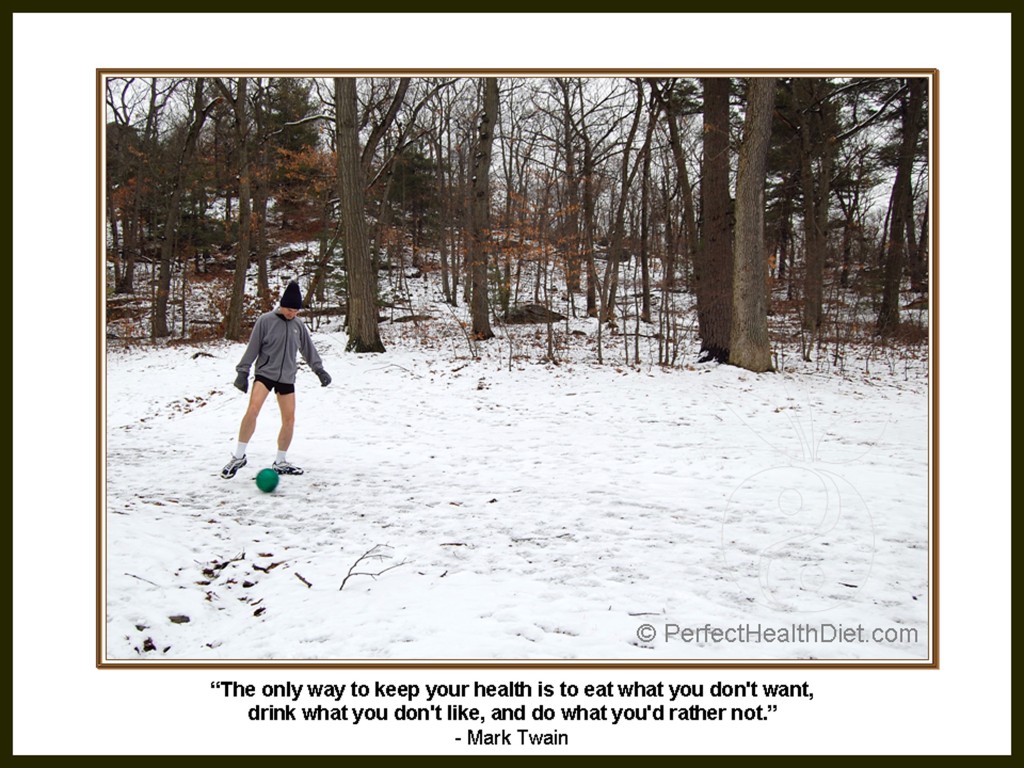I thought I’d bring some information up from the comments so it can be visible to people doing searches.
In the book we speak of “safe starches” whose safety is well attested: rice, sweet potatoes, yams, potatoes, taro, tapioca, sago. We also speak of the toxicity of grains and undercooked legumes. But a variety of less popular foods were left unmentioned. These include quinoa and millet.
Mark asked about quinoa and I gave this view of it:
Well, quinoa is not a grain or legume and so does not fall in our excluded foods, but we haven’t been including it in our “safe starches” list either, mainly due to caution and unfamiliarity on our part.
Quinoa does contain saponins (http://pmid.us/18452959) even after being debittered (http://pmid.us/11829658), and needs proper handling including washing before cooking. With proper handling it seems to be relatively safe. A Pubmed search on “quinoa toxicity” yields nothing; “quinoa saponins” yields 22 hits.
Quinoa does have a lot of protein (12-18% per Wikipedia), which makes me suspicious. Plant proteins are behind nearly all the toxicity effects of grains and legumes, and I prefer to avoid plant protein. It’s possible there are undiscovered toxicity effects.
There was a debate in the Journal of the American Dietetic Association in Nov 1999 about quinoa. (See http://pmid.us/10570670 and http://pmid.us/10570669.) One writer notes that the Celiac Sprue Association classed quinoa as “unsafe” because some celiac patients have had bad reactions to it. This does not mean that quinoa would cause problems to someone with a healthy bowel, but there is a lack of evidence either way.
Off the cuff, tentative view? Quinoa seems to be quite a bit safer than grains, and since “the dose makes the poison” it can probably be eaten in moderation as a way to diversify the diet. However, its safety is not as well proven as, say, rice or sweet potatoes or taro, and personally I wouldn’t make it my primary starch source.
This is the basic problem: we just don’t know. We know about the toxicity of wheat because billions of people have made it their primary calorie source and we can see that after 60 years of eating it, people have worse health than those who made rice their primary calorie source. Then, because wheat is so important, scientists have studied it and identified most of its toxins.
With quinoa, we lack that kind of usage and there has been little scientific study.
Since the Perfect Health Diet only calls for around 400 starch calories a day, it’s not too arduous to confine one’s self to only those starches known to be safe. At least, that’s my view.
Becky then asked about millet. I replied:
Millet is a grain and so it is guilty until proven innocent. Grains in general are very rich in toxins, so odds are millet is no exception.
That said, it is an ancestral variety which may not have undergone a lot of modification by breeding. Dr. Davis has presented some evidence that the biggest problem with wheat may be that it has twice been hybridized, expanding its genome from 14 chromosomes in its ancestral form (einkorn wheat) to 28 chromosomes (emmer wheat) through hybridization with goat grass, later to 42 chromosomes through another hybridization with Triticum grass to create modern wheat. This means wheat has toxins from three separate species, which may explain why it is the most toxic grain.
Dr William Davis has reported that some people who cannot tolerate modern wheat can tolerate einkorn: see here and here.
I recommend avoiding millet and other grains except rice, whose safety is well-attested. Since we only need about 400 carb calories a day, it’s not too difficult to confine one’s self to known-to-be-safe carbs.
But, daredevils, drunkards, and other risk-lovers may find millet worth the risk!
I was fascinated by Dr Davis’s report that ancestral wheat varieties may be much safer than current strains. It makes sense: tripling the number of plant toxins through hybridization must increase toxicity.
It appears that the progress of agriculture through hybridization and breeding has caused our food to become progressively more toxic. And this toxification of food was not an innovation of modern industrial agriculture, but was already underway in the early Neolithic.
So next time you’re tempted to criticize Big Pharma and Big Agriculture for placing mammon ahead of safety, remember that Natufian farmers were doing the same thing! Perhaps the oldest profession was not prostitution, but genetic engineering of food.

















Recent Comments